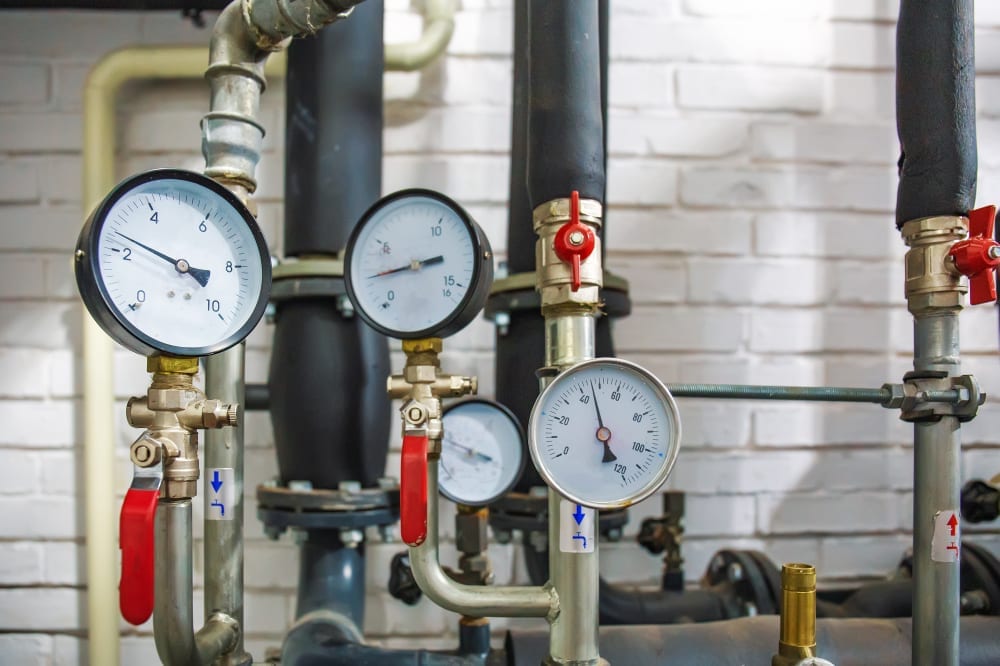Blog
What's the Most Efficient Heating System for Your Home?

When it comes to heating your home, efficiency is king. Having an efficient heating system will save you money and energy while providing a more comfortable home heating experience. Efficiency in your heating system may mean different things; efficiency in cost, environmental efficiency, or energy efficiency. With so many different options to heat your home available on the market today, it can be nearly impossible to know which heating system is right for you. We are going to take a look at some of the most popular heating systems currently available to help you determine which heating system is the most efficient and right for your home.
Geothermal Heating
Geothermal heating is one of the most efficient heating sources in terms of environmental costs. Because the energy used to heat your home is extracted directly from the ground, it protects the environment from harmful digging, fracking, or pollutants. Geothermal systems use compressor and evaporator systems similar to those used in refrigerators. While geothermal systems do use some electricity, they release far fewer greenhouse gases or other pollutants than heating systems that require natural gas, oil, or electric heat.
While geothermal heating systems are great for environmental costs, they are not a great way to save on monetary costs. Geothermal heating system installation can be costly and prohibitive, especially if you live in a densely populated area.
Wood Burning Heat
Having a wood-burning heating system can be extremely efficient in terms of cost. If you have access to free or cheap firewood, or you cut your own wood from your woodlot, it may not cost you anything at all. Unfortunately, wood-burning heating systems require a very important natural resource: wood! Because of the amount of wood required to properly heat your entire home, wood-burning heat systems may not be great for the environment despite being carbon neutral.
If you already have a fireplace in your home, you may actually be wasting tons of money and energy. Even chimneys that have a flue damper cannot prevent hot air from escaping. Because they inherently let energy escape, wood-burning heating systems are not the most energy-efficient either.
Heat Pumps
Heat pumps extract heat from the outside air to heat your home. Their energy efficiency of heat pumps depends on the climate outside. In a moderate climate, heat pumps can be extremely efficient at converting electricity into heat. In a colder climate, heat pump efficiency plummets because the heat pump has to work harder in order to deliver the same level of energy output than it normally would in a moderate climate.
Natural Gas
Traditionally the least expensive form of heating system, natural gas heating systems are often substantially cheaper than electricity or home heating oil. However, the prices associated with fluctuate greatly from month to month. Natural gas is a volatile commodity that has a fluctuating price. Depending on the price of natural gas, it could be extremely cost-efficient for your home. Unfortunately, studies show that natural gas is not the best for the environment, so natural gas heating systems may not be the most environmentally efficient heating system.
Oil
Oil heating systems are quickly falling out of favor due to the need for a storage tank, environmental and health risks, and the unpleasant odors associated with oil heating systems. Some home insurers will not even insure your home if you have an oil heating system. Additionally, you will need to regularly refill your oil heating system in order to keep it running. Much like natural gas, the price of crude oil fluctuates greatly. Unfortunately, the cost of heating with oil may end up being much higher than natural gas.
Electric
Electric heating systems are often the most expensive heating choice. Unless you live in an area where your electricity is artificially subsidized, you will often pay much more for electric heating systems. Electricity produced from heat involves the production of steam and the conversion of that steam into energy by moving it through a turbine. Typically this steam is produced by burning coal, natural gas, oil, or other fuels. In an electric heating system, the electricity converted into energy has a hard limit, meaning once it reaches capacity it will not output any more energy. This causes your heating system to be inefficient and unreliable.
What System Should I Choose
When considering all of the available options for your home’s heating system, it is important to speak with a trusted professional. The heating and cooling experts at Home Comfort Experts have extensive experience inspecting, repairing, and installing heating and cooling systems. Contact the heating and cooling professionals at Home Comfort Experts today to learn about the ways we can help you. We serve Northern Indiana and Southwestern Michigan from our 12 locations. Give us a call at (574) 255-4600 to learn about our full complement of heating, cooling and plumbing services.






